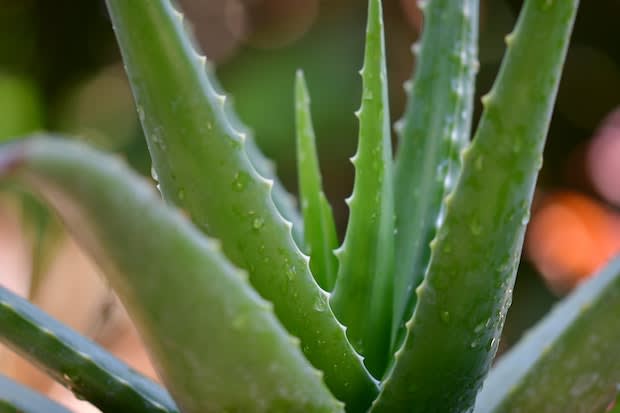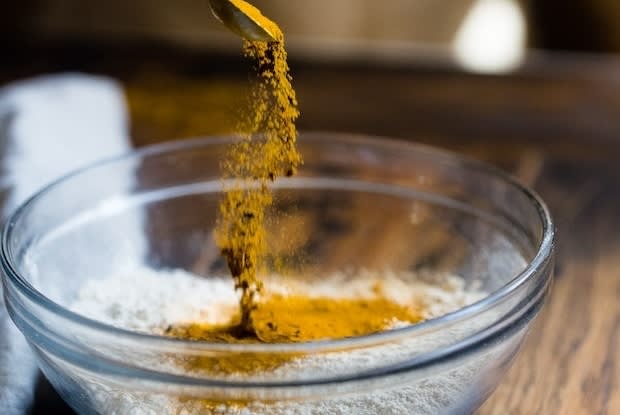Table of Contents
I. Natural Ingredients to Apply to Your Skin
II. Foods that Combat Fungal Infections
Fungal infections are pretty common and can occur at any time. They are also called mycosis, and they can occur when fungus starts living on your skin. Athlete’s foot, jock itch, ringworm, and yeast infections are the most common types of fungal infections. They tend to cause symptoms of skin irritation like scaly skin, redness, swelling, and blisters. [1]
If you are diagnosed with a fungal infection, your doctor will likely prescribe Lotriderm cream (clotrimazole/betamethasone), Diflucan (fluconazole), or Spectazole (econazole) to treat your symptoms. Mild fungal infections typically don’t pose any health threats, so many people choose to treat them from home. Read on to learn how to treat a fungal skin infection naturally.
Natural Ingredients to Apply to Your Skin
The most commonly used treatment for fungal skin infections is apple cider vinegar. It has natural anti-fungal properties and is easy to apply to affected areas. Simply dip the apple cider vinegar with a cotton ball and gently dab the irritated skin. By applying this treatment three times a day, you should see beneficial results reasonably soon. [2]
Many people like to use turmeric for its anti-microbial and anti-inflammatory properties. A study showed that turmeric contains an active compound called curcumin and that curcumin is effective against various types of fungi. [3] To apply turmeric, mix it with water or a neutral oil first, and then cover the affected area with the paste. Despite its effectiveness, some people avoid turmeric because of the yellow stain it may leave on your skin after removal. But this shouldn’t be a cause for worry because the yellow stain should vanish after washing—just don’t get it on your clothes!
Get savings updates for Diflucan
Anyone who has done research on skincare will tell you that aloe vera can do wonders for your skin. For fungal infections, aloe vera is also one of the best, time-tested natural treatments available. [2] The collagen inside of aloe vera can inhibit the growth of yeast spores. Its antioxidant properties can also soothe and repair skin damage. [3]
Garlic has a strong smell, but it is also one of the most potent anti-fungal herbs available. To apply garlic, crush some garlic, mix it with olive oil to create a paste, and then keep this paste applied to the affected area for roughly half an hour. [2]
Coconut oil contains many beneficial fatty acids that may kill fungal cells by damaging their membranes. Research suggests that coconut oil can be an effective remedy for symptoms of ringworm. If you use coconut oil as a moisturizing lotion, you can reduce your risk of getting ringworm infections. If you need to specifically address an infection, apply liquid coconut oil to the affected area three times daily. [4] As a general rule of thumb, foods rich in vitamin C can protect your body from fungal skin infections by strengthening your immune system. Foods high in vitamin C include potatoes, brussels sprouts, broccoli, blackcurrants, strawberries, and any citrus fruit like oranges. [5] Some topical natural substances for the skin can also be taken orally to improve fungal skin conditions. For example, turmeric can be beneficial when added to tea or used as a spice for meals. Adding garlic to your meals can also support your immune system. Those who consume garlic regularly are less prone to fungal skin infections. [2] Adding ginger to your diet can also be very beneficial for lowering your risk of a fungal skin condition and improving your overall health. [2] Some essential oils can be beneficial for treating fungal skin infections. Tea tree oil has been used as a remedy for almost a century and has been shown to be effective against ringworm. [4] Lemongrass oil is another essential oil that is commonly used. There is evidence that lemongrass oil reduces the activity of several types of fungus. You can mix essential oils with a neutral oil and apply with a cotton ball up to two times daily. [4] Home remedies are great ways to treat the symptoms of fungal skin infections naturally. Results may vary, but you will typically see reduced irritation within two weeks. If your symptoms do not clear up after two weeks, you may need to talk to your doctor. After an assessment, your doctor may prescribe Lotriderm cream (clotrimazole/betamethasone), Diflucan (fluconazole), or Spectazole (econazole). You should also see a doctor if your daily activities increase your risk of spreading an infection to others. The content in this article is intended for informational purposes only. This website does not provide medical advice. In all circumstances, you should always seek the advice of your physician and/or other qualified health professionals(s) for drug, medical condition, or treatment advice. The content provided on this website is not a substitute for professional medical advice, diagnosis, or treatment.
Foods that Combat Fungal Infections

Essential Oils
When to See a Doctor
